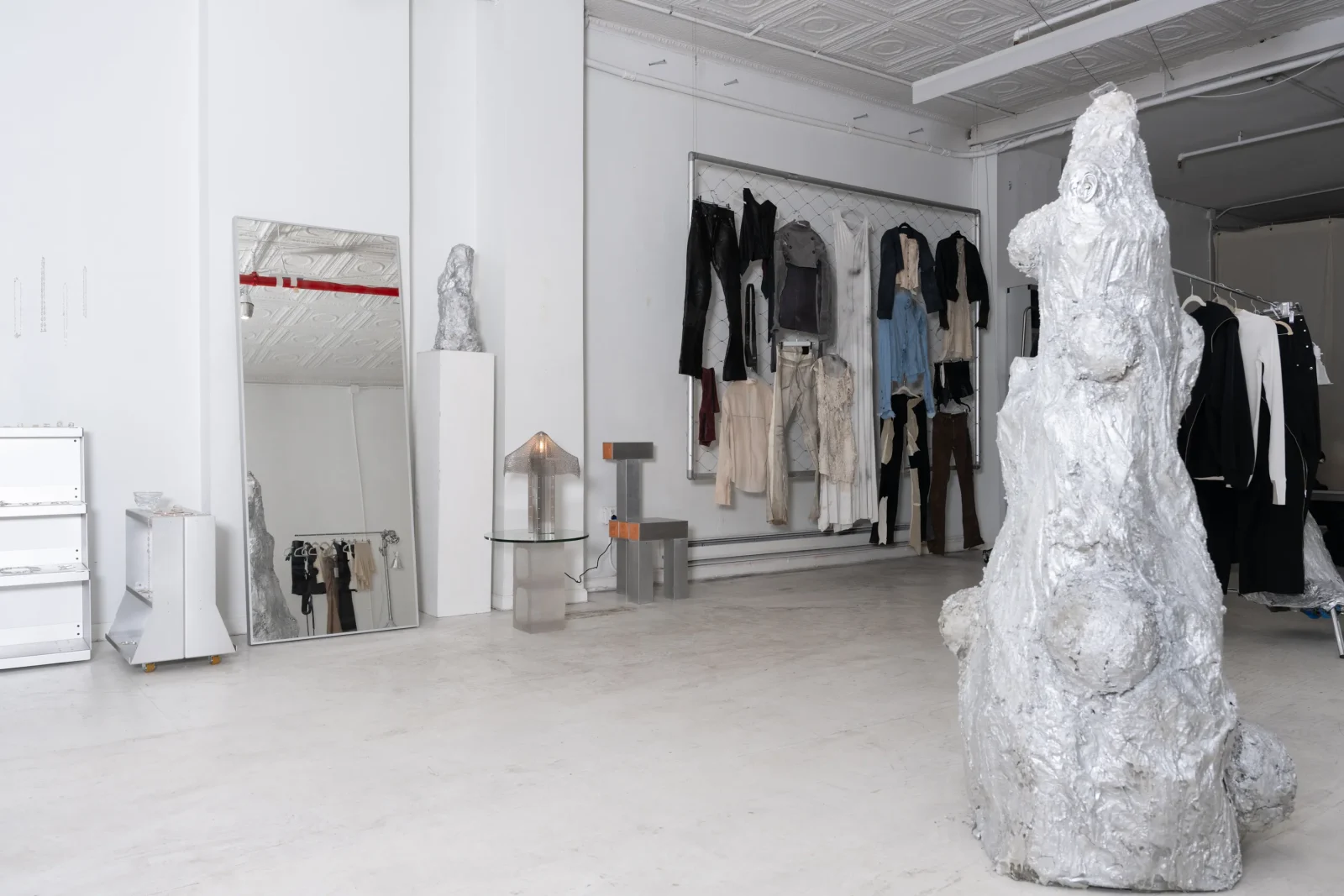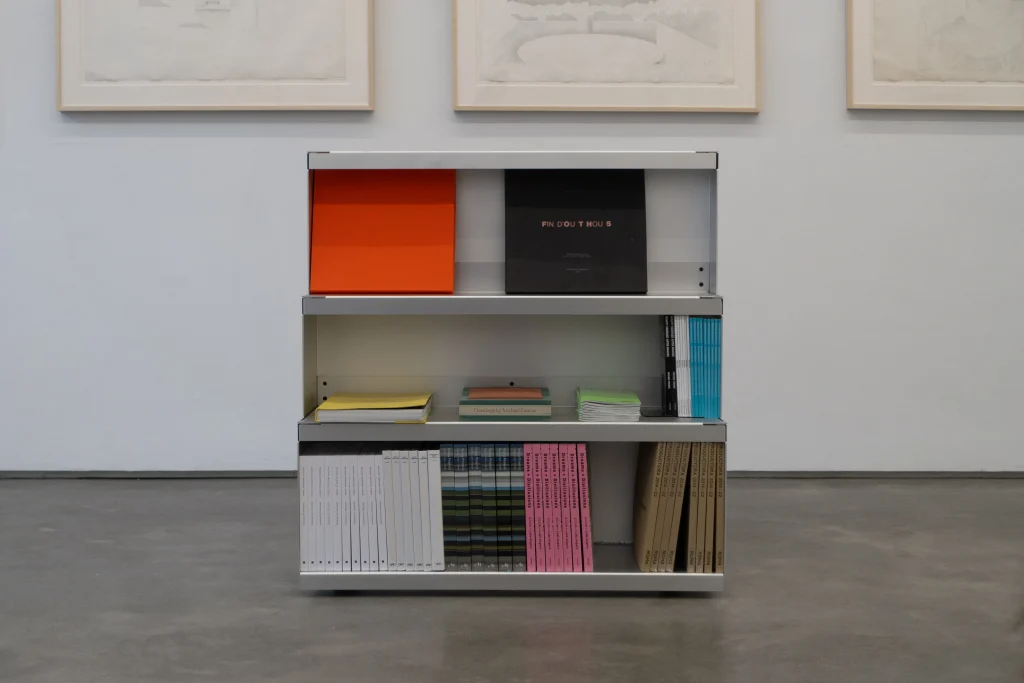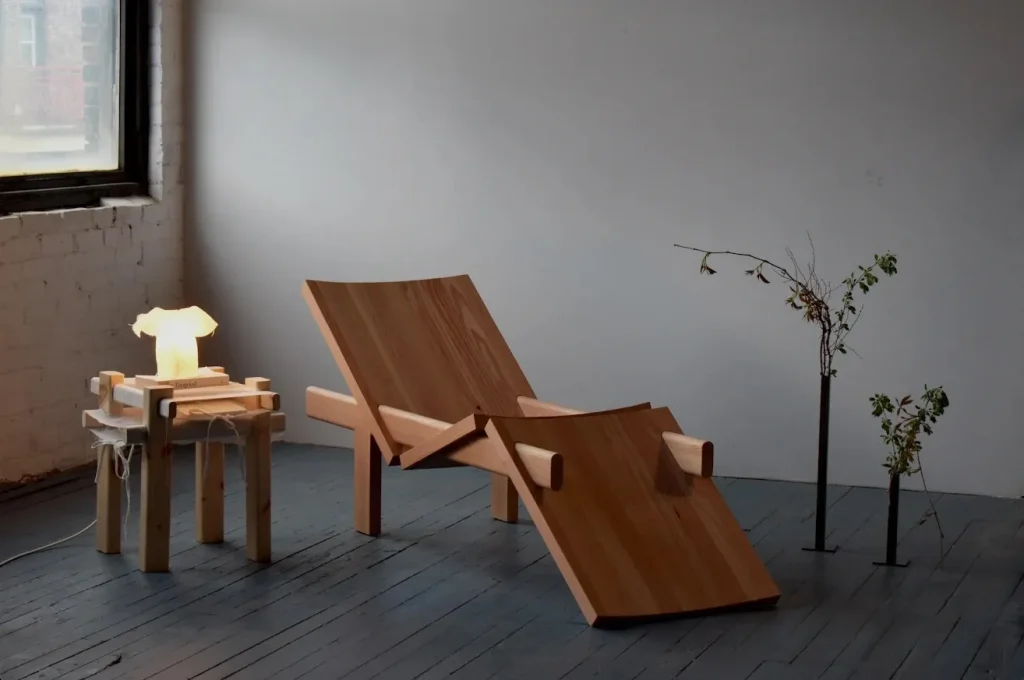
“Departures”: A New Perspective on the Traditional and the Contemporary in Jordanian Design
“While the collection draws inspiration from the traditional techniques that define design in Jordan, it also shows a more contemporary side of Jordanian aesthetics that are inspired by our landscape and surroundings, where the designers have produced new forms that are fluid and curvilinear. There’s a strong sentiment of craftsmanship – items that are hand felted, hammered, or chiseled – but the innovation is visible in the final form.“


Shop the full “Departures” collection >
ADORNO is pleased to present “Departures”, a Jordanian collection created in collaboration with the Office of Her Majesty Queen Rania Al Abdullah, the patron and supporter of Amman Design Week.
Presented among the rich, pink sands and towering cliffs of the Wadi Rum desert, “Departures” ruminates on the intersection between the traditional and the contemporary in the Jordanian collectible design scene. Curated by Rana Beiruti, curator and co-founder of Amman Design Week, it visualises “a voyage into futuristic forms; a dream of the future that is rooted in the earth”.
Full of contrasts and new interpretations of craft, the collection features work by Ahmad Jarrar, Andre Mcheileh, Far Flung, in doi, Ishraq Zraikat, kutleh, Opus Design Collective, SNC design studio, suli, subsidiary of MORPH X DESIGN STUDIO, and Twelve Degrees. Through her selection of makers, “[Beiruti] wanted to create a balance between a collection that is serious, earthy, and solid in its presence, with something light, fun, and playful”.
As a design scene, Jordan is in the midst of an evolution, coming into its own with an approach aligned with craft heritage and increasingly sustainable practices. Beiruti describes its design identity as vibrant, experimental, and raw. “There is a lot more maturity in the way design is approached”, she explains. “A deeper understanding of conscious practice that is non-violent, non-exploitative, and a friend to the environment”. With this approach, designers are seeking out locally available materials and reframing the concept of upcycling in a contemporary way, highlighting the potentials of raw materials and material wastes with final functions and, significantly, eye-catching aesthetics in mind.
“Jordan’s natural landscape is one of a kind, and its haunting beauty and mystique have inspired generations of local artisans and designers. It is wonderful to see the many facets of Jordanian creativity reflected to the world through this collection, which showcases Jordanian talent at its best.”
– Her Majesty Queen Rania Al Abdullah of Jordan




Referencing the earthy tones, natural materials, and traces of otherworldliness in the “Departures” collection, Jordan’s Wadi Rum desert provides a bold, yet grounded backdrop for the selected pieces. The country’s biodiversity – from lush woodlands to salty seas to arid deserts – is a constant source of inspiration for the makers that it hosts. This varied landscape is reflected in the tactile textures and organic forms visible in pieces like the marbled stone of in doi’s “Turret Candle Holder”; the geometric, chiseled patterning on the “Hammer & Chisel I” Cake Stand by SNC Design Studio; and the curving body of Opus Design Collective’s boldly hued “GEM Coffee Table”.
“It was important not to box [the pieces] into an architectural framework, and to leave them under natural light”, Beiruti explains. “Looking at the collection, and particularly pieces that designers have named ‘Jupiter’ and ‘Capsule’, I see something a little dreamy and interstellar about the works. I thought it was ironic to have a collection so other-worldly situated in this landscape which is very much a reality on planet Earth”.
“The use of local material is of extreme importance in Jordan because this is an untapped opportunity given that most of the raw materials are imported (wood, metals, fabrics, etc.). I believe there is a whole generation that has lost touch with the land and its outputs, and has succumbed to globalization and pressures to meet market demands. Therefore, I am especially fond of designers who have been investing time in researching the possibilities of locally available materials.”




In wood, stone, ceramic, metal, and wool, traditional craft knowledges are brought to the foreground, highlighting the continued ability and imagination of contemporary designers to manipulate earthly materials and create pieces which resonate with the Jordanian design scene today. As described by Beiruti, “the strength of design in Jordan is how designers are able to innovate with locally available materials to make stone look light, and textile look sturdy. While there is a raw aesthetic and approach to design with the color palette that keeps it familiar and grounded, there is also a playfulness in the contours, forms, and asymmetries that mimic nature in the pieces. In a way, the familiarity captures the crafts of the past, but the resulting objects speak a contemporary language”.
In this way, attention is placed on the sustainability of practices, both in terms of the continued performance of traditional techniques as well as in terms of an emphasis on locally sourced or repurposed materials to create these intimately hand-crafted pieces. Their aesthetics – spanning a range of colour, form, and texture – meld seamlessly and reflect the beauty and otherworldliness of the landscape around them.
“I hope [this collection] highlights that there is a design practice [in Jordan] that is at once raw and sustainable and close to nature, but also innovative and fun.”




As a collection, “Departures” illustrates the “journey [of the presented designers] onto a new horizon or way of working. Whether it’s their techniques that use a hybrid of digital and hand-working tools, or in the forms they are able to extrude, or in the use of the objects, these designers have taken a trajectory towards a more contemporary practice”. From the extensive material research of Ishraq Zraikat in her hand-felted “Melt” textiles, to the beautifully repurposed stone wastes in kutleh’s “Petra” Vase, to the contemporary re-interpretation of an age old refrigeration technique in the “Jarra” ceramic carafe by Twelve Degrees, the makers featured in this collection evidence the innovative and evolving design scene in Jordan.
In addition to the earthly nature of the collection, there is also a sense of playfulness. Pieces like Ahmad Jarrar’s vividly coloured “Money Balloon” piggy bank and Far Flung’s expansive “Gong Mirror” portray an eccentric aspect of the design scene. When looking to the future, Beiruti hopes that the collection “highlights that there is a design practice [in Jordan] that is at once raw and sustainable and close to nature, but also innovative and fun”.




Meet the Curator of “Departures”
Rana Beiruti is an independent curator working at the intersection of knowledge production, cultural engagement, and community development. With a background in architecture, her research interests revolve around land-based and social practices in the region supported by Her Majesty Queen Rania Al Abdullah, with a focus on topics related to land, material, craft, and the urban landscape. Her most recent exhibition titled ‘re-rooting’ opened at Darat al Funun – The Khalid Shoman Foundation in Amman, showcasing projects related to water politics, agro-ecology, and extractive land-based practices.
Rana co-founded and directed Amman Design Week, the largest non-commercial biennial for design in the region, with a program of curated exhibitions, learning programs, and cultural events. She also works as a consultant in the creative industries, and has spearheaded the initiation of several creative platforms and programs.
Rana was previously the director of the Lab at Darat al Funun, where she curated an exhibition program for emerging artists and compiled and retrieved Darat al Funun’s 30-year archive of events, exhibitions, photographs, print material, and artwork and made it available to the public. In March 2022, Rana opened an exhibition entitled “Re-Rooting” as guest curator at Darat al Funun.
“Departures” has been kindly supported by the Office of Her Majesty Queen Rania Al Abdullah.













